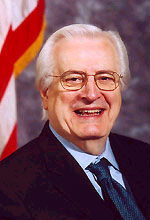A Quote by Edward Tufte
I am certainly not an intellectual relativist, nor a moral relativist.
Quote Topics
Related Quotes
The absolutist lays down the law, but the relativist hears only roaring and bawling. Or, when the relativist voice, as it is heard from philosophers such as Nietzsche or James, itself starts to grate and sounds shrill, as it often does, and when the relativist then offers concessions, the absolutist hears only insincerity. The war of words can often turn into a dialogue of the deaf, and this too if part of its power to arouse outrage and fury.
The disappearance of the heroic ideal is always accompanied by the growth of commercialism. There is a cause-and-effect relationship here, for the man of commerce is by the nature of things a relativist; his mind is constantly on the fluctuating values of the marketplace, and there is no surer way to fail than to dogmatize and moralize about things.































